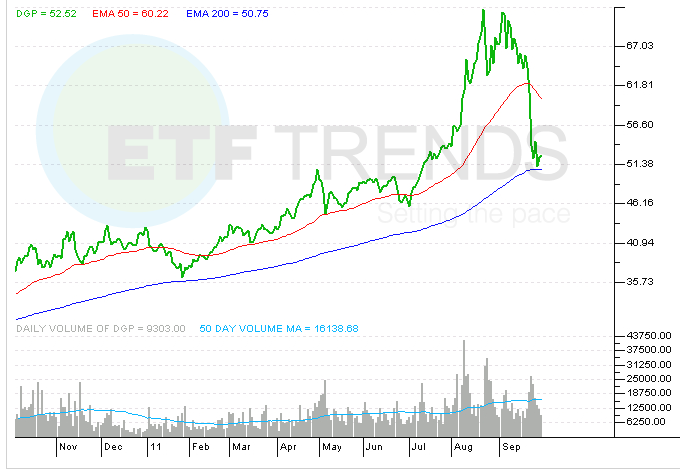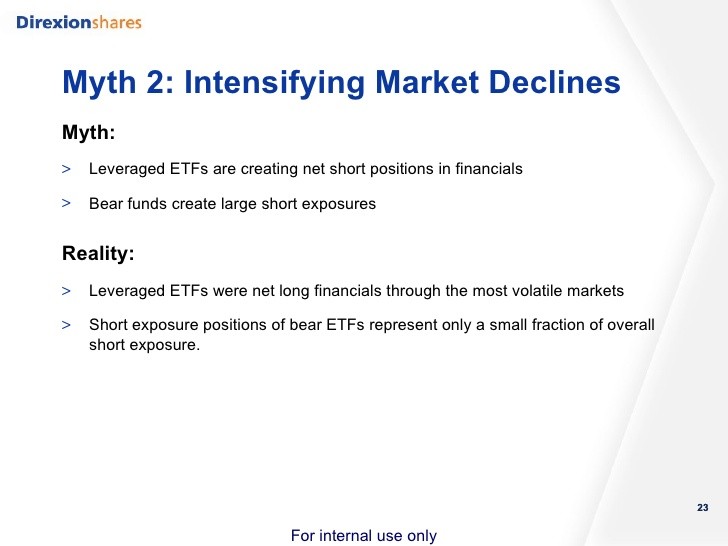How Volatile Markets Impact Leveraged ETFs
Post on: 16 Март, 2015 No Comment

ETF 101 News:
Leveraged exchange traded funds have been unfairly blamed for the recent volatility in financial markets.
In fact, leveraged funds perform better in “trending” markets rather than volatile ones.
Markets that lurch back and forth can result in longer-term performance in leveraged ETFs that is less than the sum of the individual daily returns, their providers point out.
This results from daily resetting of the leverage and the nature of compounding returns. The phenomenon is known as “volatility drag,” Dow Jones reports.
When markets yo-yo, both bullish and bearish funds can lose value, regardless of where prices eventually end up.
However, the opposite is also true. A 200% bullish leveraged ETF can deliver longer-term returns that are more than two times the index in upward-trending markets, says leveraged and inverse ETF provider ProShares. In a downward-trending market, compounding can also result in returns that are less negative than two times the return of the unleveraged investment.

“With all else being equal, a trending market is beneficial to investors in leveraged funds who make correct market predictions,” according to a 2009 paper from East Tennessee State University. “In highly volatile markets, both leverage level and time frame should be considered carefully.”
ProShares Group and Direxion in the Dow Jones report stressed their funds are designed to deliver stated returns over only a single day. They believe most investors hold the funds for short periods, according to the report.
The bottom line is that ETFs designed to deliver leverage on a daily basis dont provide the same leverage over longer periods.
“Compounding is a universal mathematical concept that affects the returns of investments. It is important for all investors to understand how compounding affects returns in different market conditions—upward-trending, downward-trending and volatile,” ProShares says on its website. “For leveraged fund investors, it is particularly important to understand that the effect of compounding on leveraged funds is significantly magnified and can cause gains and losses to occur much faster and to a greater degree.” [Do Leveraged ETFs Really Magnify Volatility?]
The opinions and forecasts expressed herein are solely those of John Spence, and may not actually come to pass. Information on this site should not be used or construed as an offer to sell, a solicitation of an offer to buy, or a recommendation for any product.














